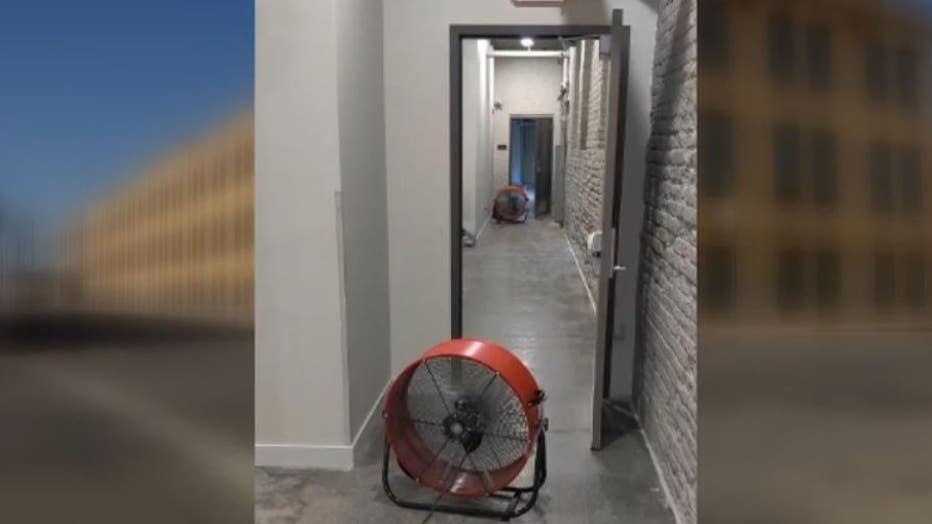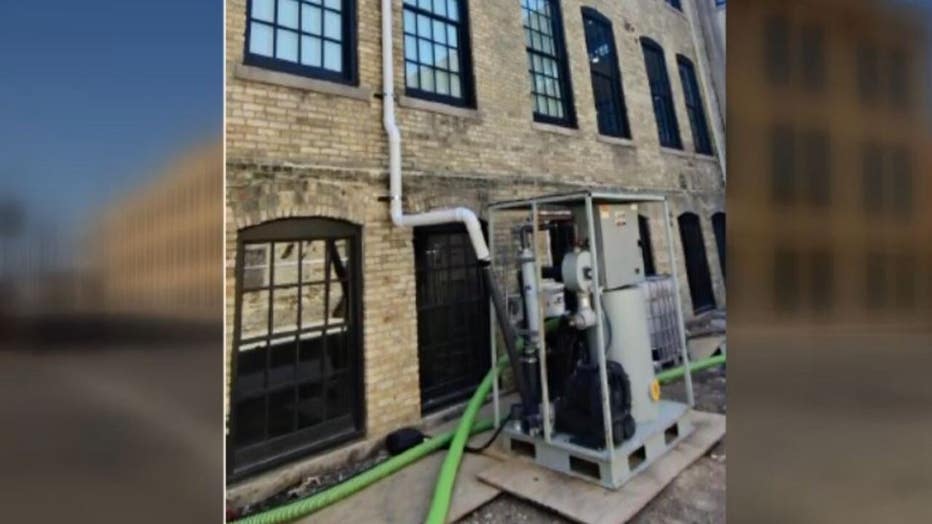Milwaukee Community Within the Corridor lawsuit amid high TCE
Tenants file lawsuit against Milwaukee Community Within the Corridor
More than two months after a toxic chemical forced more than 100 people out of Milwaukee's Community Within the Corridor apartment complex, displaced residents are taking the landlord to court.
MILWAUKEE - More than two months after a toxic chemical forced more than 100 people out of Milwaukee's Community Within the Corridor apartment complex, displaced residents are taking the landlord to court.
A class action lawsuit was filed on behalf of a resident at the complex alleging that the developer failed to disclose and misrepresented TCE contamination at the site.
The complex was built on a redeveloped industrial site at West Center and North 32nd Streets.
In March, more than 150 residents were displaced after tests conducted by the Department of Natural Resources found parts of the building had unsatisfactory levels of TCE.
The lawsuit comes after tenants were asked to sign a voluntary lease termination by June 16. If they sign, they've been promised $5,000 but give up their right to sue the developers. Some say they're not doing it.
"It all happened so fast," said Michael Cerjak, attorney with Barton Cerjak firm.
It was March 25 when the Community Within the Corridor residents were forced out of their homes.
"People don't know where they are going to go, and that's a real problem for people," said Cerjak.

Community Within the Corridor
Nearly three months later, residents say the problems continue, as developers gave them a chance to voluntarily terminate their leases in exchange for $5,000 and a promise not to sue. Instead, some went to Cerjak.
"We filed a lawsuit on behalf of a displaced resident from the CWC facility," said Cerjak.
Cerjak said tenants felt they had no options but to sign the termination.
"It's not fair to give people only seven days to decide on whether giving up all their rights and not fair to only give them a couple weeks' notice on finding alternate housing," said Cerjak.
The lawsuit says developers were not honest with tenants about the high levels of the chemical TCE found in the building.

Community Within the Corridor
"There were a lot of people who had symptoms and felt sick and had concerns if this will have any impact going forward," said Cerjak.
The lawsuit says testing for the chemical started as early as November 2020, and CWC knew since 2021 it would need a mitigation system.
"There was exposure to known chemicals in the area, and no one knows how the future is going to play out," said Cerjak.
Cerjak said more tenants were added to the lawsuit Thursday, and he expects it will grow.
Since the evacuation, CWC management has been paying living expenses — such as food, transportation and hotel rooms — for many of the displaced residents, but that will end June 27.

